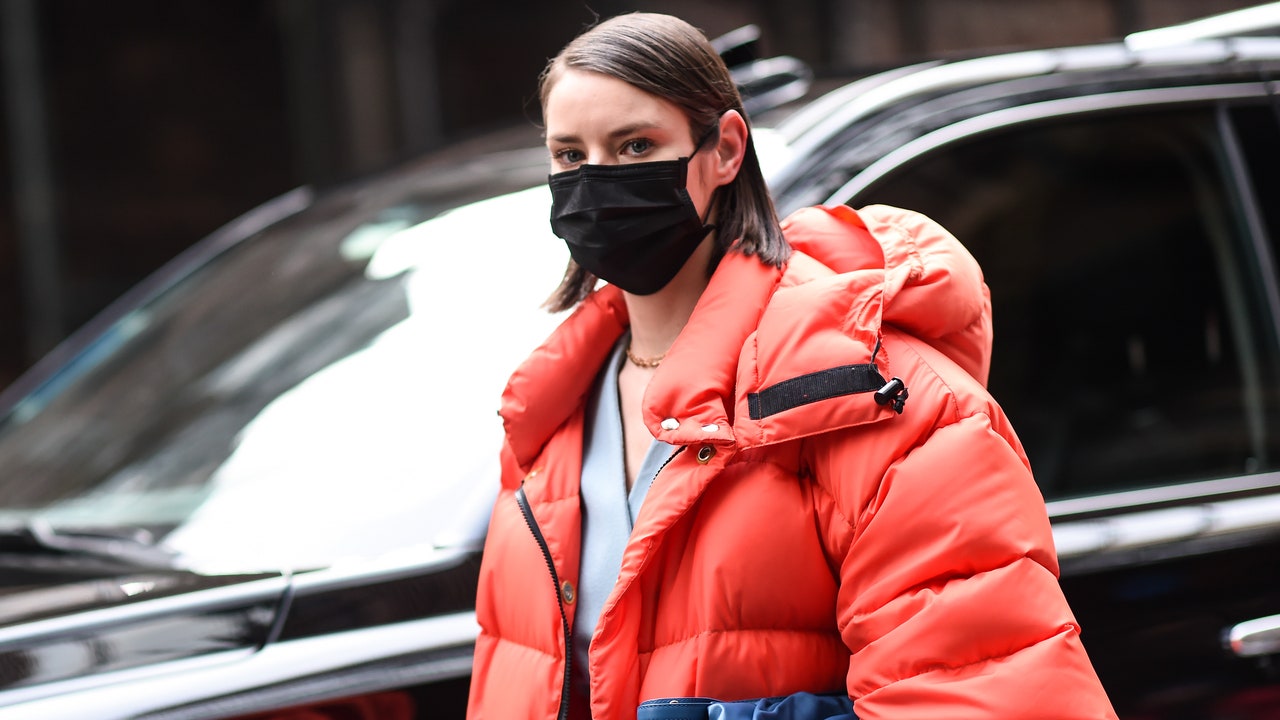How to Avoid Skin Irritation From a Face Mask Covering

As we enter this new normal, it means adjusting to changes in our daily routine, from working from home to meticulously planning our weekly grocery store trips. The newest adjustment has been wearing a face mask whenever you’re in public, following the CDC’s recommendation in order to flatten the curve. No matter if you’re a health care worker wearing a medical mask on the front lines, or you’re wearing a fabric face covering out on a daily sanity walk, you’ll soon discover that in addition to keeping you safe, your face mask may be causing some less than desirable side effects when it comes to your skin.
“Any fabric rubbing against your skin may lead to friction and irritation,” says Joshua Zeichner M.D., Director of Dermatology at Mount Sinai Hospital in NYC. “Plus, oil, sweat, dirt, and makeup can build up under the fabric. This can lead to rashes or even acne breakouts, especially in areas where the mask directly comes in contact with your skin.” In more serious cases, like those of medical workers wearing N95 masks for hours, your skin may start to break down and serious bruising can take place due to the constant rubbing.
In addition to the mask itself creating skin irritation, there’s the fact that you’re trapping your own breath and creating a warm, moist environment. “Skin under a mask can get ‘sweaty’ and damp from the moisture in your breath,” says Sofie Pavitt, an esthetician in NYC. “This can make it susceptible to breakouts and irritation.”
While a little acne is certainly worth it to keep yourself (and others) safe, there are ways to keep your skin protected too. Read on for the best ways to treat and prevent skin irritation from face masks.
Consider the fabric of your mask.
Whether you DIY a mask with a bandana or purchase one from a small retailer, the fabric you’re using can make a big difference. Across the board, experts recommend avoiding synthetic materials and picking something soft and natural like cotton. Keep in mind, though, that breathable fabrics are more likely to filter air in. Dr. Shari Marchbein, a dermatologist in NYC, recommends layering tightly woven cotton to keep you protected.
Give your makeup some time off.
If you can, it’s a good idea to let your skin breathe when wearing a mask out and about. In addition to the fact that no one is paying attention to your skin right now, “the mask is likely to remove makeup as it rubs against your skin,” says Marchbein. “That makeup can cause further occlusion of oil glands and pores potentially making breakouts worse.” Ditch your foundation and focus on a cool eyeshadow if you still want to play with makeup.
Shelf any strong cleansers or exfoliators for now.
While you might be tempted to attack your chin area with heavy-duty products to keep it clear, now is the time to really baby your skin to keep it protected. “It’s important to use ultra gentle skin cleansers and moisturizers,” says Zeichner. “Harsh facial cleansers can disrupt the outer skin layer, leading to dryness and inflammation. This makes it more likely that you’ll develop irritation from a mask sitting on your face.” He recommends sticking to gentle, simple formulas like Dove Sensitive Skin Beauty Bar, Aveeno Ultra Calming Nourishing Night Cream, and Vaseline for super damaged skin.
While Marchbein calls retinol “the backbone of any good antiaging and acne skin care routine,” she recommends taking a break from it for now, especially if you’re wearing a N95 mask since it can make skin more easily irritated. She says other serums are fine, and be sure to wear at least SPF 30 on areas where your face is exposed.





